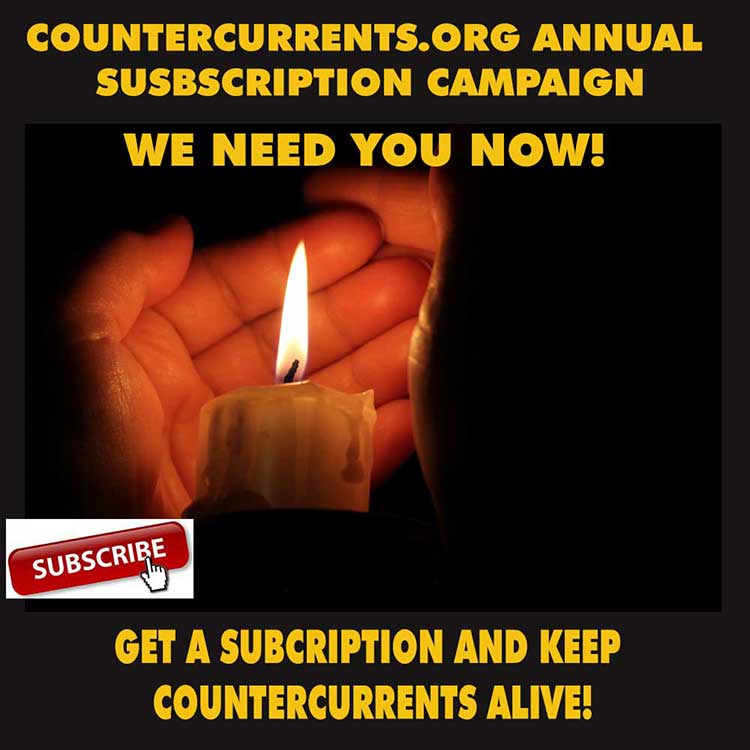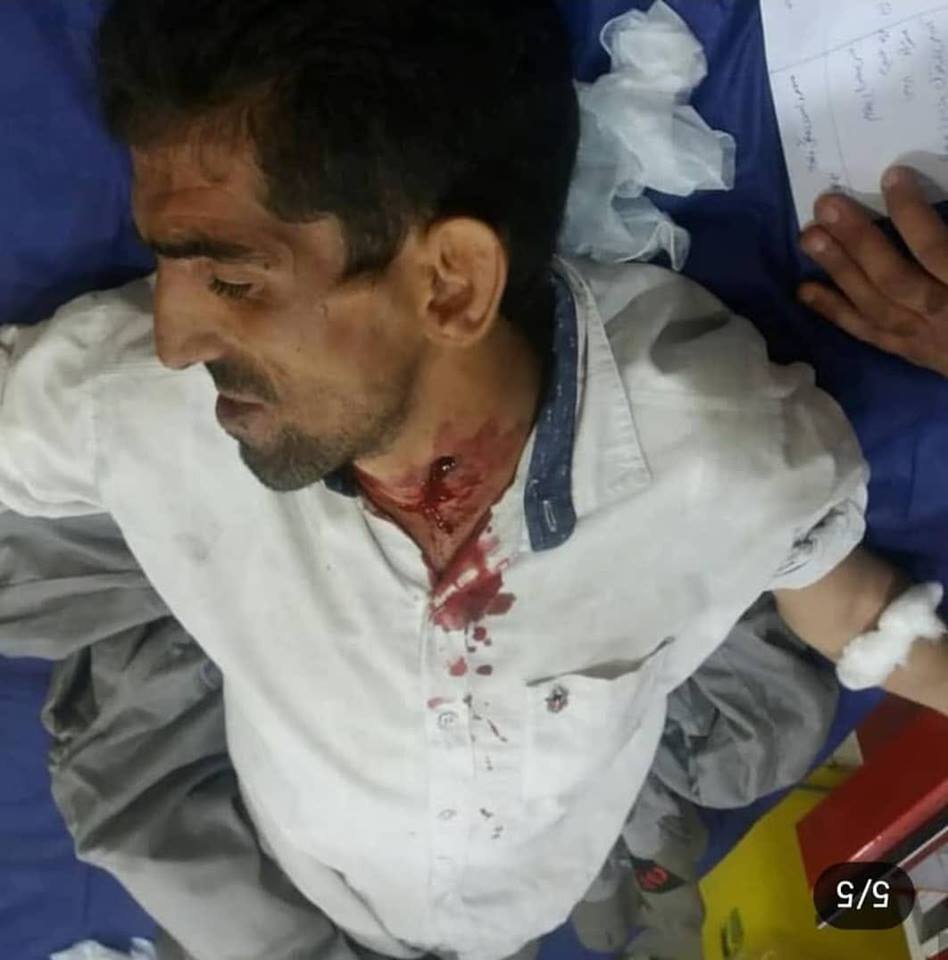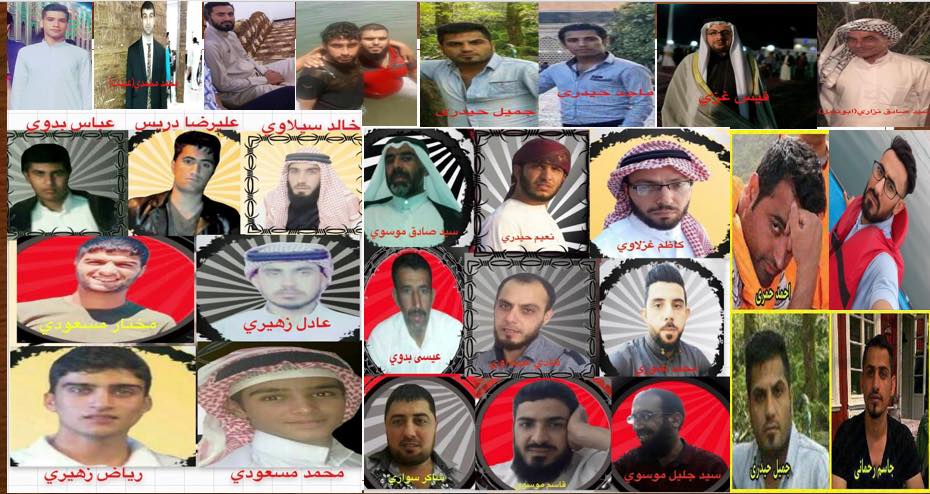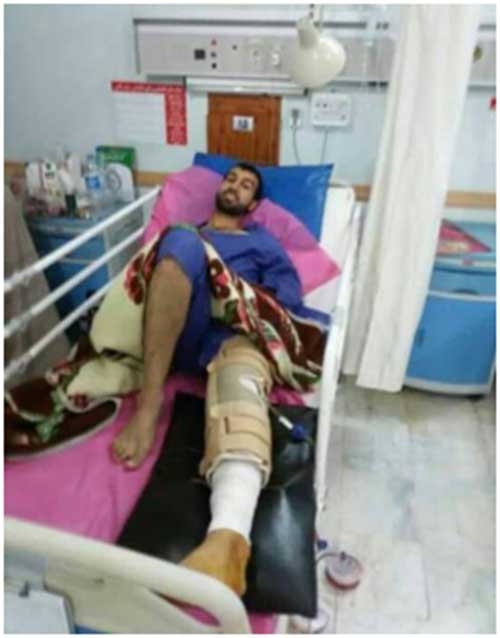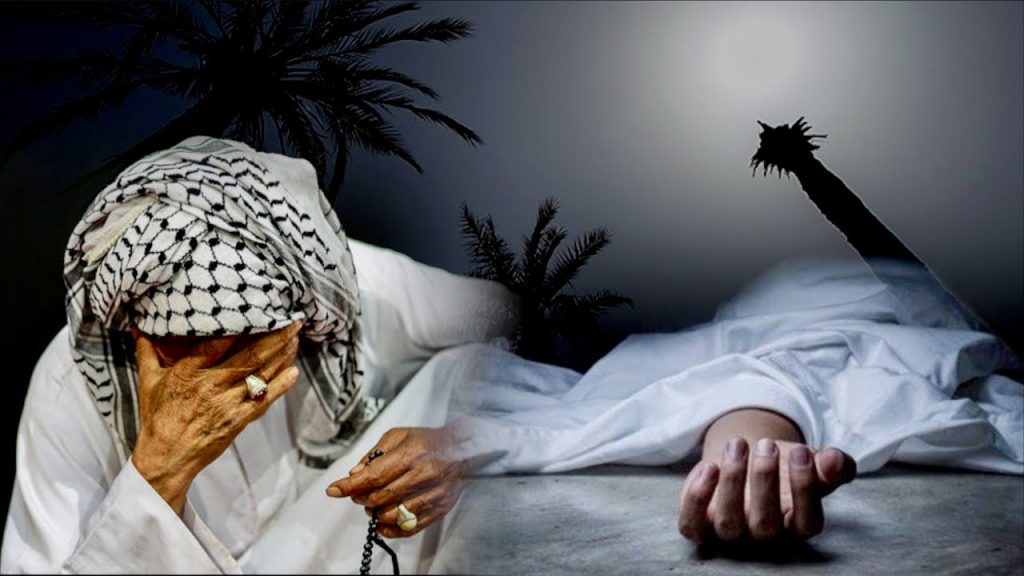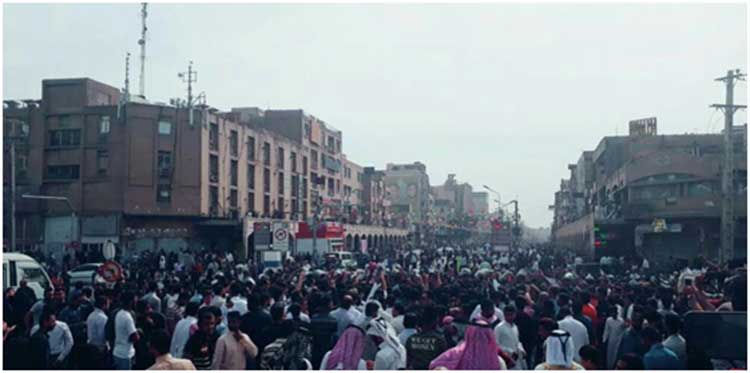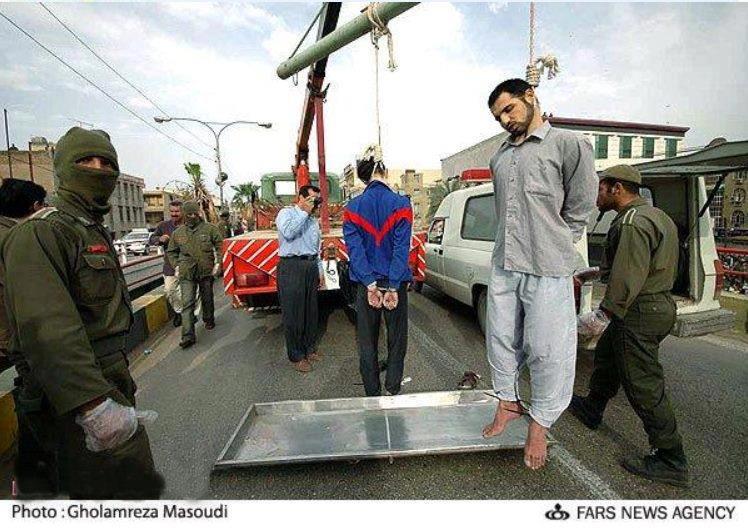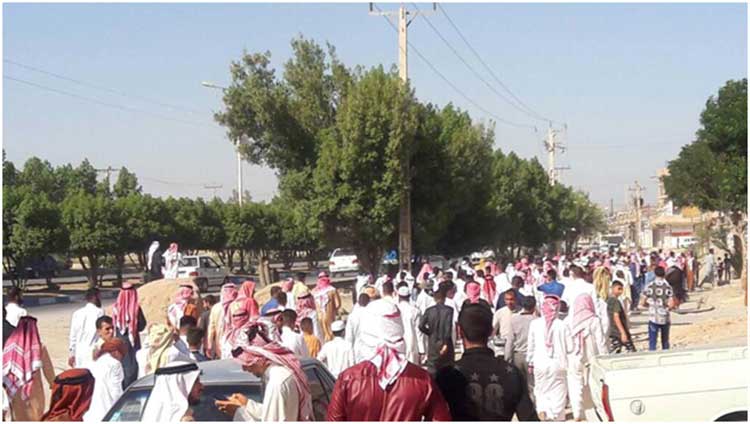
More than 30 people were brutally arrested in Ahwaz in Iran on Monday, the second day of Eid al-Fitr, after courageous Ahwazi Arabs held peaceful demonstrations in towns, cities, and villages across the region, demanding freedom and human rights and protesting against the systemic oppression and injustice which generations of Ahwazis have now endured under successive regimes for 92 years.
After attending Eid Prayer, dozens of Ahwazi Arab youths staged peaceful rallies in solidarity with Ahwazi families whose sons have been executed and imprisoned by the Iranian regime.
People gathered in front of the Martyrs families’ homes – sending a strong and defiant message to the Iranian regime by reciting poems to praise martyrs’ sacrifices.
At these peaceful rallies which swept through most of Ahwazi areas, protesters held banners and raised their voices together in chants against the Iranian regime’s relentless ethnic cleansing policies.
In spite of regime clamp-downs, each year, the Ahwazi Arab People visit families whose relatives had been executed or imprisoned by the regime. They do this not only to declare their continued solidarity with the mourning families but also to remain defiant in the face of an oppressive regime.
The protesters, boldly wearing their traditional Arab clothes which the regime proscribes them from wearing in public, chanted freedom slogans, recited poetry and participated in traditional dances, defiantly celebrating the Arab heritage which the theocratic regime has done its utmost to quash.
The protesters energetically chanted anti-regime slogans and calls for freedom vowing to continue their struggle for freedom, with the chants including “Yes, yes to liberation!”, “Ahwaz is my dear homeland!”, “The mother of the martyrs calls us”, “By soul, by blood, we sacrifice ourselves for Ahwaz!”, and “We are coming out to face you o occupiers, from every neighbourhood and every street!”
Iranian regime authorities, already nervous of the unrest roiling Iran as the country’s minorities and dissidents continue to protest against years of injustice, deployed massive numbers of heavily armed police and security personnel to terrorise the protesters and break up the demonstrations, with many protesters beaten and arrested. The regime has also banned Ahwazi people from gathering publicly and even from leaving their homes to visit family and friends during the Eid holiday, although this is a central part of the festive celebrations. It’s believed that the regime’s typical excessive reaction is intended as an effort to intimidate the protesters and activists into silent acquiescence. The arrests of protesters at demonstrations were also followed by regime personnel across the region storming and ransacking activists’ homes with many activists, arrested, and harassing, chasing and beating any young people in the streets seen wearing traditional Arab garments or heard speaking negatively about the regime.
Many of the protesters and activists arrested were taken to unknown locations, with family and friends unable to contact them since.
It’s important to note that Eid Al-Fitr and Eid Al-adha – the most important holidays for the Ahwazi Arab people – are also used as a form of resistance in the face of a regime which has sought to erase the Ahwazi’s Arab identity.
The Iranian regime has for a long time attempted to crush any expression of Ahwazis’ Arab cultural identity, wishing to both deny the people their own identity and to deny them any of the massive wealth extracted from the oil and gas resources on their lands; over 95 percent of the oil and gas resources claimed by Iran are located in the Ahwaz region; the offer of favourable oil and gas deals is believed to be the reason that the British government of the time facing multiple helped Iran’s then-Shah to occupy the Arab region in 1925.
As protests continue to grow amongst Iranian minorities whose anger at years of systemic oppression, injustice and bigotry is exacerbated by the current economic crisis plaguing the country and hitting the already oppressed minorities hardest of all, the so-called Islamic Republic is facing multiple crises as younger generations refuse to accept these grotesque injustices for much longer.
Arabs living in the region of Iran-occupied Ahwaz have campaigned for years to achieve rights aimed at preserving their unique cultural identity, which is being eroded due to regime-sanctioned Persianization. Ahwazi Arabs have suffered greatly due to decades of widespread oppressive regime tactics, which have kept the vast majority from obtaining gainful employment, entry into educational institutions, and access to stable living situations.
One of the clearest indications of this oppressive erasure is the Iranian government’s doctoring of demographic statistics. The Iranian regime claims that the Arab population of Iran is only around 2-3% of the total. Were this percentage accurate, only around 2.3 million Arabs would exist in a country that has a population of 80 million. In reality, however, there are around 12 million Arabs in Al-Ahwaz region, with even more living along Iran’s Gulf coast areas. These statistics mean the percentage of Arabs in Iran is well over 10% of the total population.
Prior to 1925, Ahwaz was semi-independent and even in some historical periods was also whollyindependent country. Following the assassination of its leader Sheikh Khazal and a brutal military invasion that resulted in the massacre of many Ahwaz inhabitants, the territory was forcefully annexed to Iran. Since this time, the continued plight of Arabs in Iran-occupied Ahwaz has been largely ignored by the world at large. Iran does not govern Ahwaz as if it is a region equal in importance to the rest of Iran. Rather, Iran rules Ahwaz as if it is an occupied territory meant to be used for its resources and nothing more.
The Arabs who call Ahwaz home are not valued by the Iranian regime, nor are they seen as equal to their Persian counterparts. As such, the Arabs in Iran are underrepresented by regime statistics in an effort to erase their cultural identity, to bury them beneath the yoke of systematic Persianization.
Deny the Ahwazi Arab identity. By every tool assimilate the Arabs into Persian culture, and if they resist and refuse, humiliate them until they get fed up and sick of being Arab. If they resist more, intimidate them into silence. If they refuse to be silent, just execute them: You will be Persian, or I will destroy you. This is the despotic logic of Iranian mentality towards Arabs. These are the plight of Ahwazi Arab people under Iran occupation.
Here I want todescribe briefly some of the oppression and injustice still continuing against the Arab Ahwazis in southern and southwestern Iran.
The repression by the regime authorities of the people of Ahwaz is amongst the worst in Iran, with the region suffering the highest rates of execution in the country–no mean feat for a regime which now has one of the highest per capita execution rates globally, according to the UN.
Thousands of Ahwazis have been murdered by the regime and hundreds more injured in daily random shootings by regime military and security personnel. Ahwazis are targeted for such ‘crimes’ as wearing native Arab garments, speaking their native Arabic language, or holding peaceful protests calling for human rights. The pretext given for arrest, imprisonment and/or execution of political or human rights activists is usually Moharebeh or ‘crimes against God’.
Despite the region containing over 95 percent of Iran’s oil and gas resources, it is the poorest in Iran.
Amongst the forms of oppression inflicted on Ahwazis are the following:
Linguistic and cultural oppression. Not only is the policy of enforced poverty used by the Iranian regime to keep Ahwazi Arabs oppressed and impoverished, but efforts to extinguish cultural heritage further exacerbate the oppression. Ahwazis are forbidden from learning or teaching in our native language, Arabic, or even from naming our children certain Arabic names. The teaching of Arab history or circulation of Arabic publications is also outlawed.
Religious oppression: Ahwazi Sunnis are automatically accused of being ‘agents of Saudi Arabia’, with the hardline theocratic regime prohibiting the construction of mosques for Sunnis and banning any religious education in Sunnism or sects other than the fundamentalist Shiism which is the doctrine of the ruling regime, whose founder, Khomeini, is viewed, quite literally, as being divine. These proscriptions on other faiths and sects are seen as a way to strengthen the control of the ruling regime.
Educational oppression: Most Ahwazis have been very deliberately deprived of education by successive regimes. If knowledge is power, then this is a means of keeping the people powerless, with Ahwazis deprived of the most basic education facilities, available to ethnically Persian Iranians.
Social repression: By denying Ahwazis their cultural identity, and awareness and restricting any form of cultural expression, the regime aims to eradicate this central aspect of the people’s identity. The regime has also covertly encouraged the spread of addictive drugs as a means of subjugation and control, locking young people into a cycle of addiction that leaves them with no inclination to be involved in civil or political activism.
Economic oppression: Without education, Ahwazis start at a disadvantage. The Ahwazis are further held back by a lack of access to or benefit from their own natural resources–oil, gas, arable farmland and even access to the waters for fishing, once one of the principal economic activities in the region. Unemployment levels are among the highest in Iran. In the city of Ahwaz, there is a vast divide between the wealthy and the impoverished. Those responsible for city planning in Ahwaz have restructured the city in such a manner that the nicer neighbourhoods are populated with Persians, whereas the more run-down and deprived neighbourhoods are inhabited predominantly by Arabs. The disparity in access to nicer neighborhoods is exacerbated by restrictions on education and employment access, which are more readily available to Persians than to Arabs. Arabs in Al-Ahwaz live on approximately 1-2 dollars a day, and the average salary of an employee in this oil-rich area is only around 150-200 dollars a month. But revenue garnered from the Iranian oil industry in Al-Ahwaz is not actually being used to reinvest in the local economy and improve living conditions for those living and working there. Instead, profits are funneled into the Iranian military, which is well known as a violator of human rights locally and abroad. This leaves the region impoverished and neglected, while the Iranian regime continues to benefit from the fruits of their labour. Since massive oil reserves were found in Ahwaz, Persians from other parts of Iran have taken the opportunity to secure high-paying jobs in the region while leaving Ahwazi Arabs to work the lowest income jobs.
As a matter of fact, regardless of the process by which Ahwazis seek to attain their rights (whether through decentralized politics, federalism, autonomy, or complete independence), Iran will be left with a multitude of destructive after-effects. The Iranian authorities are well aware of the danger posed by the independence of any of their peoples under occupation – specifically in Ahwaz. Due to this fear, the regime has resorted to a variety of oppressive practices such as systematic persecution, murder, displacement, arbitrary detention, and theft of resources. Iran is a country that relies on oil and gas revenues at an estimated 87-90% of the county’s income. Were oil-rich Ahwaz to attain independence, Iran would lose nearly 90% of their oil revenues – that’s a loss of almost 80% of the total government income. The loss of access to oil reserves in Ahwaz would bankrupt the Iranian government in a very short period of time. Also, were Ahwaz to become independent, Iran would struggle to provide adequate food and water to their people, as 50% of their water comes from Ahwaz. This would result in many agricultural lands not having sufficient irrigation to produce crops, thereby expanding the prevalence of poverty and hunger in the country.
Environmental oppression: The whole Ahwaz region has the highest levels of environmental pollution in the world, according to the latest UN statistics. With many of the region’s rivers dammed and diverted to ethnically Persian areas, much of the once rich farmland is now desert, bringing other problems such as sandstorms and drought. Heavy pollution from the oil and gas extraction in the region further add to the devastating environmental problems, which are further exacerbated by summer temperatures of over 50 degrees Celsius.
Political oppression: any involvement in political activism, other than support of the regime, is banned for Ahwazis, with political and human rights activists routinely arrested, systematically tortured, and often exiled to other parts of Iran or executed on the feeblest of excuses. Ahwazis are prohibited from holding any position in the state, at the local or regional level, except in a limited range of political and religious posts serving the regime. The Islamic Republic allows the appointment of these individuals in order to both present a facade of Ahwazi support for the regime and to distort and eradicate the people’s struggle for equality and human rights. Any efforts by Ahwazis to organise or assemble are brutally cracked down upon.
The tragedy of the Ahwazi Arabs; is indeed the unaddressed and unknown nature of their suffering; to a UN that remains without actions in order to be helpful in putting the Iranian regime under actual pressure and put an end to its non-stop suppression inflicted upon Ahwazi Arabs for decades.
Rahim Hamid is a freelance journalist and human rights advocate and co-founder of Ahwaz Monitor website who writes about the plight of his community – the Ahwazi Arabs – and other ethnic groups in Iran. You can follow him on twitter: @samireza42

